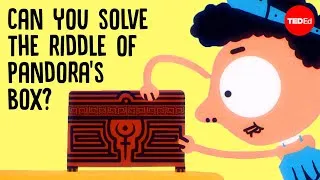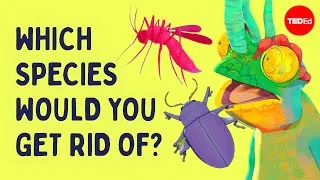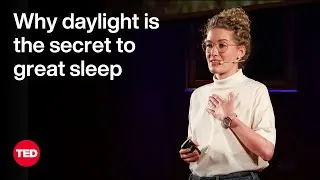How to Use the Present Perfect Simple and Present Perfect Continuous
英文文法 — 怎樣使用簡單現在完成式和現在完成進行式
232,763 views ・ 2021-07-21
請雙擊下方英文字幕播放視頻。
00:00
Hi, I’m Kasia. Welcome to Oxford
Online English! In this lesson,
0
590
5310
嗨,我是Kasia。歡迎來到Oxford
Online English!在本節課裡,
00:05
you can learn about the present perfect simple
and present perfect continuous verb forms.
1
5900
6270
您可以學到簡單現在完成式和現在
完成進行式動詞形式。
00:12
What’s the difference between ‘I have done’
and ‘I have been doing?’ When should you
2
12170
5880
“I have done”和
“I have been doing”之間有什麼區別?什麼時候
00:18
use the present perfect continuous? You’ll see
the answers to these questions in this lesson.
3
18050
5820
您應當用現在完成進行式?您會在本節
課裡看到這些問題的答案。
00:23
Before we start, do you find it difficult
to listen to English for long periods?
4
23870
5970
在我們開始之前,您覺得聽
英文很長時間有點難嗎?
00:29
No problem – use the English subtitles to
help yourself understand! Turn them on now;
5
29840
7740
沒問題 – 使用英文字幕來幫您自己
理解!現在打開它們:
00:37
just click the ‘CC’ button in the
bottom right of your video player,
6
37580
4920
就點擊您的影片播放軟體
底部右側的“CC”按鍵。
00:42
or, if you’re watching on a
smartphone, tap the settings button.
7
42500
4170
或者,如果您在一部智慧型手機上
觀看,敲擊設定按鍵。
00:46
But now, let’s start with a basic point: what
is the present perfect continuous verb tense?
8
46670
8190
但是,現在,我們從一個基本的重點開始:
什麼是現在完成進行式動詞時態?
00:58
Hey! Sorry I’m late…
9
58230
2130
Hey! Sorry I’m late…
01:00
Where have you been? I’ve been
trying to call you all morning!
10
60360
3240
Where have you been? I’ve been
trying to call you all morning!
01:04
Have you been waiting long?
11
64410
870
Have you been waiting long?
01:06
Not so long. I just didn’t know where you were.
12
66090
3810
Not so long. I just didn’t know where you were.
01:09
I’ve been preparing for this lesson for the
last few hours. I just lost track of time!
13
69900
3780
I’ve been preparing for this lesson for the
last few hours. I just lost track of time!
01:13
So, let’s start!
14
73680
2790
那麼,我們開始吧!
01:16
Look at three sentences you heard in the dialogue.
15
76470
3780
看看您在對話裡聽到的三個句子。
01:20
Do you know how to complete them?
Look at the full sentences.
16
80250
7560
您知道怎麼完成它們嗎?
看看整句。
01:27
These all use the same verb form –
the present perfect continuous. Some
17
87810
9720
所有這些使用相同的動詞形式 –
現在完成進行式。一些
01:37
questions. One: how do you make positive
and negative sentences, and questions?
18
97530
5970
問題。問一: 您怎麼造肯定句、
否定句和疑問句?
01:43
Two: what does this verb form mean?
19
103500
4860
問二:這個動詞形式意思是什麼?
01:48
We’ll spend the rest of this
lesson answering question two,
20
108360
5250
我們會用本節課的剩餘時間
回答問二,
01:53
but let’s look at the first question now.
21
113610
2220
但是,我們現在看看問一。
01:55
Form the present perfect continuous with
three things. Firstly, ‘have’ or ‘has’.
22
115830
6150
構成現在完成進行式有三個要素。
首先,“have”或“has”。
02:01
Then, add ‘been’.
Then, add an -ing verb.
23
121980
9000
然後,加“been”。
然後,加一個-ing 動詞。
02:10
Let’s try it now. Look at three
sentences. Can you make them
24
130980
6420
我們現在試一下。看三個句子。
您可以造現在完成
02:17
present perfect continuous? Pause the
video and say the sentences out loud,
25
137910
4830
進行式句子嗎?暫停影片,
並大聲地唸出句子,
02:22
using the present perfect continuous verb form.
Could you do it? Let’s check the answers.
26
142740
7860
使用現在完成進行式動詞形式。
您能做到嗎?我們看下答案。
02:30
Did you get them right?
Next, to make a negative,
27
150600
7590
您答對了嗎?
接下來,造否定句,
02:38
just add ‘not’ after ‘have’ or ‘has’. For
example: I have been working all morning;
28
158190
8670
只需要增加“have”或“has”。例如:
I have been working all morning;
02:46
I have *not* been working all morning.
She has been waiting there for hours;
29
166860
7080
I have *not* been working all morning.
She has been waiting there for hours;
02:53
she has *not* been waiting there for hours.
Actually, we’re emphasising the word ‘not’ so you
30
173940
9720
she has *not* been waiting there for hours.
實際上,我們在強調單字“not”,所以,您
03:03
can hear it, but in natural speech, you should
use contractions, like ‘haven’t’ or ‘hasn’t’.
31
183660
6930
能聽到那個,但是,在自然講話裡,您應當
使用縮讀字,像是“haven’t”或“hasn’t”。
03:11
‘I haven’t been working all morning.’
‘She hasn’t been waiting there for hours.’
32
191170
6540
“I haven’t been working all morning.”
“She hasn’t been waiting there for hours.”
03:17
What about the last sentence?
Can you make it negative? Make
33
197710
7530
最後的句子呢?
您能造否定句嗎?
03:25
the negative form and say it
out loud. Use a contraction.
34
205240
4080
造否定形式並大聲地唸出來。
使用一個縮讀字。
03:29
The answer is ‘it hasn’t been
raining.’ Did you get it?
35
209320
6690
答案是“it hasn’t been
raining.”您答對了嗎?
03:36
Finally, make questions in the present
perfect continuous by moving ‘have’ or
36
216010
6930
最後,用移動“have”或“has”到
主語前的方式造現在完成
03:42
‘has’ before the subject.
For example: ‘Has she been
37
222940
4290
進行式疑問句。
例如:“Has she been
03:47
waiting there for hours?’
‘Has it been raining?’
38
227230
3990
waiting there for hours?”
“Has it been raining?”
03:51
These rules will help you to form the
present perfect continuous verb tense. But,
39
231220
7620
這些規則會幫助您去構建現在完成
進行式動詞時態。但是,
03:58
how do you use it? What does it mean?
Let’s start to answer that question.
40
238840
4530
您怎麼用它?它意思是什麼?
我們開始回答那個問題。
04:06
How long have you been doing this?
41
246560
2640
How long have you been doing this?
04:09
This? You mean, making this video?
42
249200
3360
This? You mean, making this video?
04:12
I mean teaching. How long have you been teaching?
43
252560
3600
I mean teaching. How long have you been teaching?
04:16
Ooh… For over ten years now.
44
256160
3060
Ooh… For over ten years now.
04:19
Should we take a break?
We’ve been working for hours.
45
259220
4950
Should we take a break?
We’ve been working for hours.
04:24
Sure. Want to get a doughnut
or something from the bakery?
46
264170
4098
Sure. Want to get a doughnut
or something from the bakery?
04:28
Hmmm… Better not. I’ve been trying
to cut down on how much sugar I eat.
47
268268
4362
Hmmm… Better not. I’ve been trying
to cut down on how much sugar I eat.
04:32
Well, how about a coffee, instead?
48
272630
2940
Well, how about a coffee, instead?
04:35
Good idea!
Look at four examples of the
49
275570
4980
Good idea!
看您聽到的四個現在完成
04:40
present perfect continuous which you heard.
Can you see what connects them?
50
280550
6540
進行式的例子。
您能看到什麼連接它們嗎?
04:47
In all four sentences, you’re talking
about something which started in the past,
51
287090
7380
在所有句子裡,您在談論
某些在過去開始並在
04:54
and continues in the present.
This can be a continuous action;
52
294470
6930
現在繼續的事情,
這可以是一個持續行為;
05:01
something which started before now, and
continued without a break until now.
53
301400
5040
某些事情在之前就開始了,
並不停止繼續直到現在。
05:06
For example, if you say ‘We’ve been
working for hours’, you mean that
54
306440
5400
例如,如果您說“We’ve been
working for hours”,您的意思是
05:11
we started working several hours ago, and
we’ve continued working from then until now.
55
311840
5280
幾個小時前我們開始工作,
我們從那時開始持續工作到現在。
05:17
You can also use the present perfect continuous
for repeated or regular actions. For example,
56
317120
6780
您也能把現在完成進行式用在
重複有規律的行為。例如,
05:23
if I say ‘I’ve been teaching for over ten
years now’, I mean that this is something
57
323900
6030
如果我說“I’ve been teaching for over ten
years now”,我的意思
05:29
I’ve been doing regularly, starting
over ten years ago and continuing now.
58
329930
4890
是這是我從十年前開始持續到
現在有規律做的某些事情。
05:34
So, to use the present perfect continuous
in this way, three things need to be true.
59
334820
8670
所以,要以這種方式來使用現在
完成進行式,要符合三件要素。
05:43
One: the action must have started in the past.
60
343490
5730
一:行為必須開始在過去。
05:49
Two: the action must be something
continuous, or repeated regularly.
61
349220
7170
二:行為必須是某些持續的或
有規律重複的事情。
05:56
Three: you must still be doing
this thing now, in the present.
62
356390
6960
三:您必須是仍然在
現在做這件事。
06:03
Let’s practise! Look at three questions.
Pause the video and try to answer the questions,
63
363350
9960
我們來練習一下。看三個問題。
暫停影片,並試著使用
06:13
using the present perfect continuous. Say
your answers out loud. If it’s difficult,
64
373310
5880
現在完成進行式回答問題。大聲地
唸出您的答案。如果
06:19
repeat your answers until you can
produce them fluently. Try it now!
65
379190
4800
那是困難的,重複您的回答直到您能夠
流利地做它們。現在試一下!
06:23
Could you do it? Was it easy or difficult?
66
383990
4260
您可以做嗎?那是容易或難的?
06:28
Of course, there are many possibilities,
but let’s look at three sample answers.
67
388250
9000
當然,有一些可能性,
但是,我們看三個例子的答案。
06:37
For question one, you could say
‘I’ve been cleaning my room and
68
397250
5550
對問一,您可以說 “I’ve been cleaning
my room and doing a little bit
06:42
doing a little bit of English study.’
For question two, you could say ‘I’ve
69
402800
6570
of English study.”對問二,您可以說“I’ve
been watching a show called Dark
06:49
been watching a show called Dark on Netflix.’
For question three, you could say ‘So far this
70
409370
9210
on Netflix.” 對問三,您可以說
“So far this week, I’ve mostly been hanging
06:58
week, I’ve mostly been hanging out at home and
reading. I have a good book I want to finish!’
71
418580
6180
out at home and reading. I have
a good book I want to finish!”
07:04
This is the most basic way to use
the present perfect continuous. But,
72
424760
9240
這是使用現在完成進行式
的最基本方式。但是,
07:14
there’s another important use of
this verb tense – let’s look now.
73
434000
4770
這個動詞時態還有另一個重要
的用途 – 我們現在看一下。
07:21
What happened to your hands? They’re filthy!
74
441530
2640
What happened to your hands? They’re filthy!
07:24
I’ve been working on my bike.
75
444170
1710
I’ve been working on my bike.
07:25
Well, go and wash them! I don’t
want you getting everything dirty.
76
445880
3030
Well, go and wash them! I don’t
want you getting everything dirty.
07:28
Why are you in such a bad mood?
77
448910
2340
Why are you in such a bad mood?
07:31
I’ve been working on my website…
78
451790
1320
I’ve been working on my website…
07:33
Not going well?
79
453110
1470
Not going well?
07:34
No!
80
454580
750
No!
07:35
Look at the first two lines from the dialogue.
A question: is she working on her bike now?
81
455330
9360
看對話裡的前兩行。
問一:她現在在用她的腳踏車嗎?
07:44
The answer is ‘no’. So, why use the
present perfect continuous here? The
82
464690
7710
答案是“no”。所以。為什麼在這裡
使用現在完成進行式?
07:52
action has finished; it’s in the past.
Shouldn’t we use a past verb tense?
83
472400
5775
行為結束了;那是在過去。我們不必
使用一個動詞過去時態吧?
07:58
You use the present perfect continuous here for
a continuous action which finished recently and
84
478175
8595
因為一個在最近完成的並且有 *現在*可見
結果的持續行為,您在這裡
08:06
which has visible results *now*.
Or, more simply: use the present
85
486770
6870
使用現在完成進行式。或者
更簡單一點:使用現在完成
08:13
perfect continuous to explain why
things look they way they look now.
86
493640
5370
進行式來解釋為什麼
事情看起來像現在那樣。
08:19
For example: ‘Why are you so sweaty?
I’ve been jogging.’
87
499010
7530
例如:“Why are you so sweaty?
I’ve been jogging.”
08:26
‘Why is the kitchen in such a mess?
I’ve been cooking all afternoon.’
88
506540
7770
“Why is the kitchen in such a mess?
I’ve been cooking all afternoon.”
08:34
‘You look tired. Yeah, I’ve been
working too much this week.’
89
514310
7620
“You look tired. Yeah, I’ve been
working too much this week.”
08:41
OK, now you know the two basic ways to
use the present perfect continuous. Next,
90
521930
8910
好,現在您知道使用現在完成進行式
的兩種基本方法。接下來,
08:50
another important question: how do you know
when to use the present perfect continuous,
91
530840
4470
另一個重要的問題:您怎麼知道什麼時候
使用現在完成進行式,
08:55
and when to use the simple form?
92
535310
2730
以及什麼時候用簡單式?
09:00
Did you hear? Jen’s getting married!
93
540890
3180
Did you hear? Jen’s getting married!
09:04
Really? That’s good news, I guess.
94
544070
3480
Really? That’s good news, I guess.
09:07
‘I guess’?
95
547550
1050
‘I guess’?
09:08
Well, how long have they been together?
I last saw her three months ago,
96
548600
5220
Well, how long have they been together?
I last saw her three months ago,
09:13
and she didn’t say anything
about being in a relationship.
97
553820
2220
and she didn’t say anything
about being in a relationship.
09:16
I think they’ve been going
out for a couple of months.
98
556040
4650
I think they’ve been going
out for a couple of months.
09:20
That’s not long…
99
560690
1320
That’s not long…
09:22
Maybe not, but I think they’ve known each
other for longer. Anyway, she seems really
100
562010
6660
Maybe not, but I think they’ve known each
other for longer. Anyway, she seems really
09:28
happy. She’s so excited about the wedding –
she’s been talking about it non-stop for weeks.
101
568670
6030
happy. She’s so excited about the wedding –
she’s been talking about it non-stop for weeks.
09:35
I bet.
102
575330
570
09:35
Let’s look at two sentences you heard.
These are describing similar
103
575900
9240
I bet.
我們看看您聽到的兩個問題。
有描述相似的環境。
09:45
situations. So, why use different verb forms?
The verb in the first sentence – ‘go out’ – is
104
585140
7920
所以,為什麼使用不同的動詞形式?
在句一裡的動詞 – “go out” – 是
09:53
an action. But, in the second sentence, the verb
– know – describes a *state*, not an action.
105
593060
8160
一個行為。但是,在句二,動詞– know
– 描述了一個*狀態*,不是一個行為。
10:01
What does this mean? ‘Knowing’ someone is a state.
It’s not something you do. If you know someone,
106
601220
10140
這意思是什麼?“Knowing”某人是一個狀態。
那不是您做的某些事情。如果您認識某人,
10:11
then you know them. You know them today,
and you’ll know them tomorrow, too.
107
611360
4770
那麼,您認識他們。您今天認識他們,
明天也會認識他們。
10:16
State verbs include ‘be’, ‘like’,
‘believe’, ‘understand’ or ‘seem’.
108
616130
5550
狀態動詞包括“be”、“like”、
“believe”、“understand”或“seem”。
10:21
Many verbs which relate to feelings
or mental states are state verbs.
109
621680
5160
很多與感覺或思想狀態
有關的動詞是狀態動詞。
10:26
State verbs aren’t generally used in continuous
forms. If you’re using a state verb, like ‘be’,
110
626840
7530
狀態動詞不常用在進行式。
如果您在使用一個狀態動詞,像是“be”,
10:34
you should use the present perfect
simple tense, not the continuous.
111
634370
4950
您應當使用簡單現在完成
時態,而不是進行時態。
10:39
Let’s test this quickly. Look at two
more sentences from the dialogue.
112
639320
4860
我們快速測試這個。再看
對話裡的兩個句子形式。
10:44
Do these verbs refer to states, or actions? Should
they be present perfect simple, or continuous? Try
113
644180
11460
這些動詞指的是狀態還是行為?它們應當是
簡單現在完成式,或進行式?
10:55
to remember, or work out the answers! Pause
the video if you need more time to think.
114
655640
5490
試著記起來或找出答案!如果您需要
更多時間來考慮,暫停影片。
11:01
Let’s check.
115
661130
3510
我們檢查一下。
11:04
‘Be’ is a state verb, so it
should be present perfect simple.
116
664640
7770
“Be”是一個狀態動詞,所以,
那應當是簡單現在完成式。
11:14
‘Talk’ is an action – it’s something you do. So,
it should be present perfect continuous here.
117
674280
6720
“Talk”是一個行為 – 那是您做的事情。所以,
那在這裡應當是現在完成進行式。
11:21
There’s one exception to this rule: ‘want’ is
a state verb, but you can use it in the present
118
681000
7950
這個規則有一個例外:“want”是一個
狀態動詞,但是,您可以
11:28
perfect continuous. For example: ‘I’ve
been wanting to see this film for ages!’
119
688950
5100
在現在完成進行式用它。例如:“I’ve
been wanting to see this film for ages!”
11:34
‘Actually, I’ve been wanting to talk
to you about this for some time.’
120
694050
5070
“Actually, I’ve been wanting to talk
to you about this for some time.”
11:39
You could also use the simple form here –
I’ve wanted – it doesn’t matter which you use.
121
699120
8880
您也可以在這裡使用簡單形式 –
I’ve wanted – 您用這個沒有問題。
11:48
In this section, you’ve learned a basic way to
122
708000
5130
在本單元,您會學到一個基本方法
來講簡單現在完成式
11:53
tell the difference between the simple
and continuous present perfect forms.
123
713130
5070
和現在完成進行式
形式之間的區別。
11:58
In our final section, you’ll see
124
718200
3180
在我們的最後一個單元,您會再看到
12:01
one more important difference
between these two verb tenses.
125
721380
3630
這兩種動詞時態之間的一個重要區別。
12:07
Haven’t you started cooking yet? Everyone
will be here in less than an hour!
126
727720
4890
Haven’t you started cooking yet? Everyone
will be here in less than an hour!
12:12
I have started… I mean, I’ve
chopped all the vegetables.
127
732610
4590
I have started… I mean, I’ve
chopped all the vegetables.
12:17
But, the stew will take at least two hours to
cook. There’s no way it’ll be ready in time!
128
737200
4980
But, the stew will take at least two hours to
cook. There’s no way it’ll be ready in time!
12:22
Well, you could have helped me… I’ve been doing
everything myself, and it’s a lot of work.
129
742180
6030
Well, you could have helped me… I’ve been doing
everything myself, and it’s a lot of work.
12:28
Yeah, you know what else is a lot of work?
Cleaning the whole house! I’ve been vacuuming,
130
748210
5970
Yeah, you know what else is a lot of work?
Cleaning the whole house! I’ve been vacuuming,
12:34
mopping, dusting… I’ve cleaned both bathrooms.
I haven’t just been sitting around all day.
131
754180
5130
mopping, dusting… I’ve cleaned both bathrooms.
I haven’t just been sitting around all day.
12:39
OK, well, have you finished?
Can you give me a hand now?
132
759310
5340
OK, well, have you finished?
Can you give me a hand now?
12:44
Sure, I’m free now. What needs doing?
133
764650
2640
Sure, I’m free now. What needs doing?
12:47
Actually, you know what? We’ve run out
of milk. Could you pop out and get some?
134
767290
5490
Actually, you know what? We’ve run out
of milk. Could you pop out and get some?
12:52
Yeah, OK.
135
772780
1500
Yeah, OK.
12:54
Look at a sentence you heard.
136
774280
2490
看一個您聽到的句子。
12:56
Let’s add another one.
These are both possible,
137
776770
7500
我們增加另外一個。
可能有兩個,
13:04
but they have slightly different
meanings. Can you explain the difference?
138
784270
3270
但是,他們的意思有略微差異。
您能解釋那差異嗎?
13:07
The first sentence, with the present
perfect simple, focuses on the *result*
139
787540
8670
句一,是簡單現在完成式,
著重在行為的*結果*。
13:16
of the action. Using the simple form shows
that you have finished this and there is
140
796210
6420
使用簡單形式表明
您完成了這個,並有一個結果
13:22
a result – in this case, the vegetables
are chopped and ready to go in the stew.
141
802630
6000
– 在這件事情上,蔬菜
已經切碎了,並準備燉了。
13:28
The second sentence, with the present perfect
continuous, focuses on the *process*. If
142
808630
9300
句二,是現在完成進行式,
著重在*程序*。如果
13:37
you say ‘I’ve been chopping the vegetables’,
there’s no clear result. Using the continuous
143
817930
7920
您說“I’ve been chopping the vegetables”,
結果不清晰。使用進行形式
13:45
form simply shows that you’ve spent time on
this thing, and you’re probably not finished.
144
825850
6030
簡單地表明您花了時間在這件
事情上,您有可能沒完成。
13:51
Let’s practise this point. Look at four sentences.
145
831880
5670
我們來練習一下這一點。看四個句子。
13:57
Here’s a task for you: in these sentences, can you
use the present perfect simple, or the continuous,
146
837550
8730
這裡是您的任務:在這些句子裡,您可以
使用簡單現在完成式或進行式,
14:06
or both? If both are possible, is
the meaning the same, or different?
147
846280
5370
或兩者嗎?如果兩者是可能的,
意思是相同的,還是有區別嗎?
14:11
Pause the video and think about your ideas.
Take your time! Start again when you’re ready.
148
851650
7710
暫停影片,開始考慮您的想法。
自己做!當您準備好了,再開始。
14:21
OK? Let’s look together.
149
861900
1650
好了嗎?我們一起來看看。
14:23
In number one, only the simple form is possible.
150
863550
4020
在句一,只有簡單形式是可能的。
14:27
This is because there’s a number – you’ve called
*five* times – which shows a clear result.
151
867570
7590
這是因為一個數字 – 您稱
*五*次 – 那表明了一個清晰的結果。
14:35
In sentence two, both are possible,
but the continuous is more likely.
152
875160
8520
在句二,兩者都有可能,
但是進行式更有可能。
14:43
There’s no difference in meaning.
This is because you still haven’t arrived,
153
883680
6180
在意思上沒有區別。
這是因為您仍然沒有到達,
14:49
so there’s no result. Probably,
you want to focus on the process,
154
889860
5220
所以沒結果。有可能,
您想著重在程序上,
14:55
meaning how much time you’ve spent driving.
In sentence three, both are possible,
155
895080
8100
意思是您花了多少時間開車。
在句三,兩者都有可能,
15:03
with little difference in meaning.
This is because you can focus on the
156
903180
4230
有一點點區別。這是因為
您可以著重在
15:07
result – you’ve finished watching
many documentaries – or you can
157
907410
3810
結果 – 您已經看完了很多
紀錄片 – 或者您可以
15:11
focus on the process – you’ve spent
time watching nature documentaries.
158
911220
4020
著重在程序 – 您花了
時間看自然紀錄片。
15:15
Confusing? Don’t worry about it. Here, the basic
meaning is the same whichever form you use.
159
915240
7320
混淆了嗎?不用擔心那個。在這裡,基本的
意思是與您使用的任何形式相同的。
15:22
In sentence four, both are possible,
but here the meaning would be different.
160
922560
8700
在句四,兩者是可能的,
但是,在這裡意思應該是不同的。
15:31
If you say ‘I’ve made a
soup for lunch’, then you’ve
161
931260
6060
如果您說“I’ve made a
soup for lunch”,那麼您已經
15:37
finished cooking, and the soup is ready to eat.
If you use the continuous form, then you probably
162
937320
8070
煮完了,燙可以喝了。如果您使用
進行式形式,那麼您有可能
15:45
haven’t finished. I’ve spent some time cooking,
but there’s probably no result – meaning no soup.
163
945390
7830
沒有煮好。我花了時間煮,但是,
有可能沒結果 – 意思是沒湯。
15:53
Maybe you’re thinking: why
‘probably?’ It’s a good question!
164
953220
6060
也許您在想:為什麼
“probably?”那是一個好問題!
15:59
It’s because the sentence just doesn’t
contain that information. If you say
165
959280
5160
那是因為句子就是沒含有訊息。
如果您說
16:04
‘I’ve been making a soup for lunch,’ there’s no
information about whether you’ve finished or not.
166
964440
4800
“I’ve been making a soup for lunch”,
沒有關於您是否煮完的訊息。
16:09
But, if you *had* finished, you’d almost certainly
use the present perfect simple – ‘I’ve made a
167
969240
7170
但是,如果您*已經*煮完了,您幾乎肯定使用
簡單現在完成式 – “I’ve made a
16:16
soup.’ So, using the continuous strongly
suggests that you haven’t finished.
168
976410
4380
soup.”所以,使用進行式強烈地表明
您還沒有煮完。
16:20
That’s all. Thanks for watching!
169
980790
2880
本節課到此結束。感謝觀看!
16:23
See you next time!
170
983670
1590
下次見!
New videos
關於本網站
本網站將向您介紹對學習英語有用的 YouTube 視頻。 您將看到來自世界各地的一流教師教授的英語課程。 雙擊每個視頻頁面上顯示的英文字幕,從那裡播放視頻。 字幕與視頻播放同步滾動。 如果您有任何意見或要求,請使用此聯繫表與我們聯繫。







